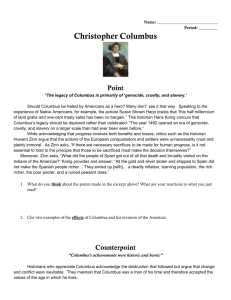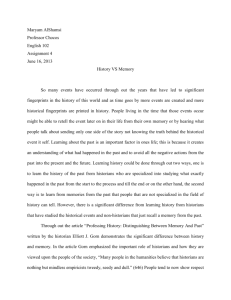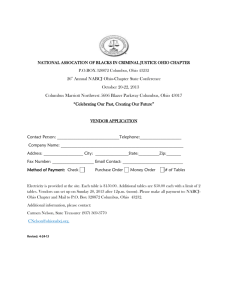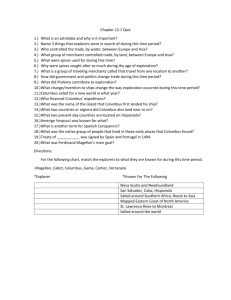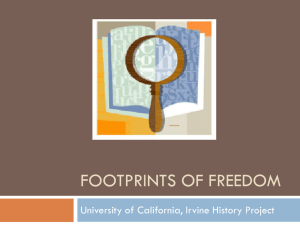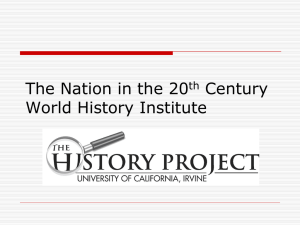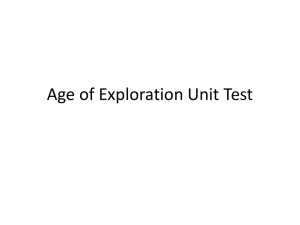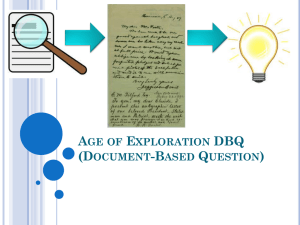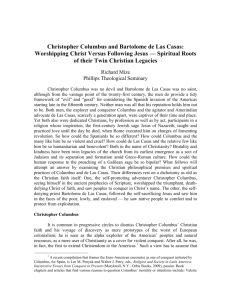Howard Zinn Reading on Christopher Columbus
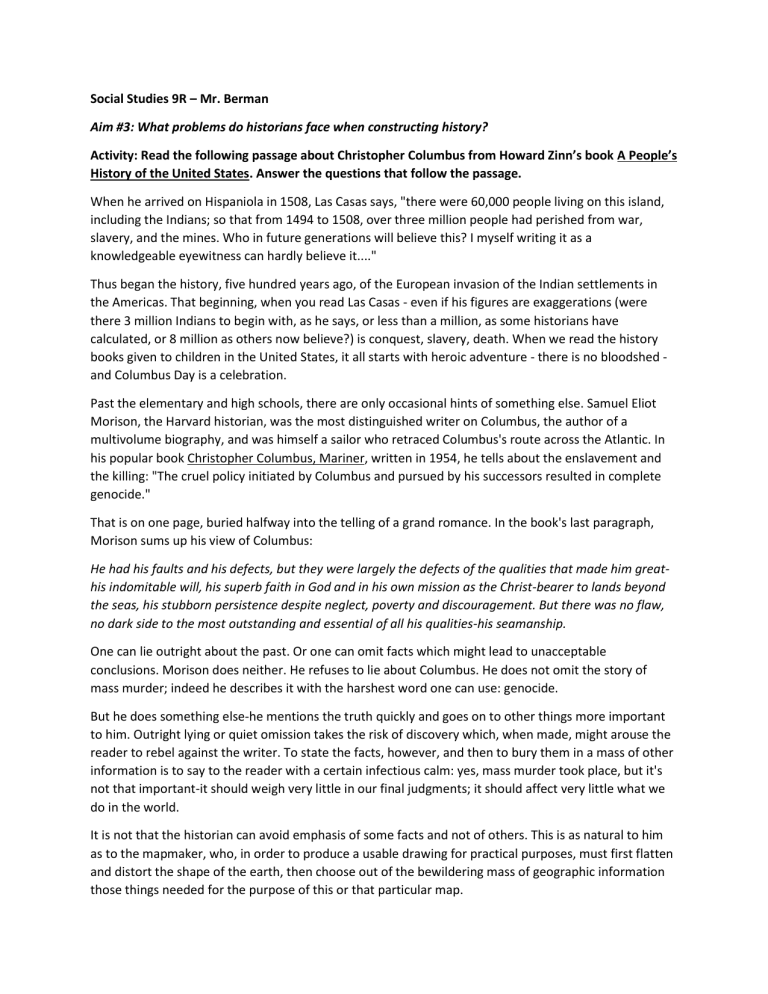
Social Studies 9R – Mr. Berman
Aim #3: What problems do historians face when constructing history?
Activity: Read the following passage about Christopher Columbus from Howard Zinn’s book A People’s
History of the United States. Answer the questions that follow the passage.
When he arrived on Hispaniola in 1508, Las Casas says, "there were 60,000 people living on this island, including the Indians; so that from 1494 to 1508, over three million people had perished from war, slavery, and the mines. Who in future generations will believe this? I myself writing it as a knowledgeable eyewitness can hardly believe it...."
Thus began the history, five hundred years ago, of the European invasion of the Indian settlements in the Americas. That beginning, when you read Las Casas - even if his figures are exaggerations (were there 3 million Indians to begin with, as he says, or less than a million, as some historians have calculated, or 8 million as others now believe?) is conquest, slavery, death. When we read the history books given to children in the United States, it all starts with heroic adventure - there is no bloodshed and Columbus Day is a celebration.
Past the elementary and high schools, there are only occasional hints of something else. Samuel Eliot
Morison, the Harvard historian, was the most distinguished writer on Columbus, the author of a multivolume biography, and was himself a sailor who retraced Columbus's route across the Atlantic. In his popular book Christopher Columbus, Mariner, written in 1954, he tells about the enslavement and the killing: "The cruel policy initiated by Columbus and pursued by his successors resulted in complete genocide."
That is on one page, buried halfway into the telling of a grand romance. In the book's last paragraph,
Morison sums up his view of Columbus:
He had his faults and his defects, but they were largely the defects of the qualities that made him greathis indomitable will, his superb faith in God and in his own mission as the Christ-bearer to lands beyond the seas, his stubborn persistence despite neglect, poverty and discouragement. But there was no flaw, no dark side to the most outstanding and essential of all his qualities-his seamanship.
One can lie outright about the past. Or one can omit facts which might lead to unacceptable conclusions. Morison does neither. He refuses to lie about Columbus. He does not omit the story of mass murder; indeed he describes it with the harshest word one can use: genocide.
But he does something else-he mentions the truth quickly and goes on to other things more important to him. Outright lying or quiet omission takes the risk of discovery which, when made, might arouse the reader to rebel against the writer. To state the facts, however, and then to bury them in a mass of other information is to say to the reader with a certain infectious calm: yes, mass murder took place, but it's not that important-it should weigh very little in our final judgments; it should affect very little what we do in the world.
It is not that the historian can avoid emphasis of some facts and not of others. This is as natural to him as to the mapmaker, who, in order to produce a usable drawing for practical purposes, must first flatten and distort the shape of the earth, then choose out of the bewildering mass of geographic information those things needed for the purpose of this or that particular map.
My argument cannot be against selection, simplification, emphasis, which are inevitable for both cartographers and historians. But the map-maker's distortion is a technical necessity for a common purpose shared by all people who need maps. The historian's distortion is more than technical, it is ideological; it is released into a world of contending interests, where any chosen emphasis supports
(whether the historian means to or not) some kind of interest, whether economic or political or racial or national or sexual.
Furthermore, this ideological interest is not openly expressed in the way a mapmaker's technical interest is obvious ("This is a Mercator projection for long-range navigation - for short-range, you'd better use a different projection"). No, it is presented as if all readers of history had a common interest which historians serve to the best of their ability. This is not intentional deception; the historian has been trained in a society in which education and knowledge are put forward as technical problems of excellence and not as tools for contending social classes, races, nations.
To emphasize the heroism of Columbus and his successors as navigators and discoverers, and to deemphasize their genocide, is not a technical necessity but an ideological choice. It serves unwittingly to justify what was done.
Questions:
1.
Do you think Christopher Columbus should be remembered as a hero or a murderer in history?
Why?
2.
According to the author, why are there problems with the study of history?
